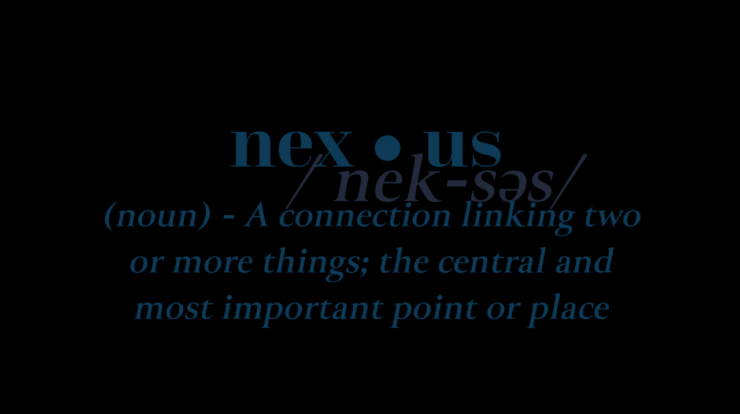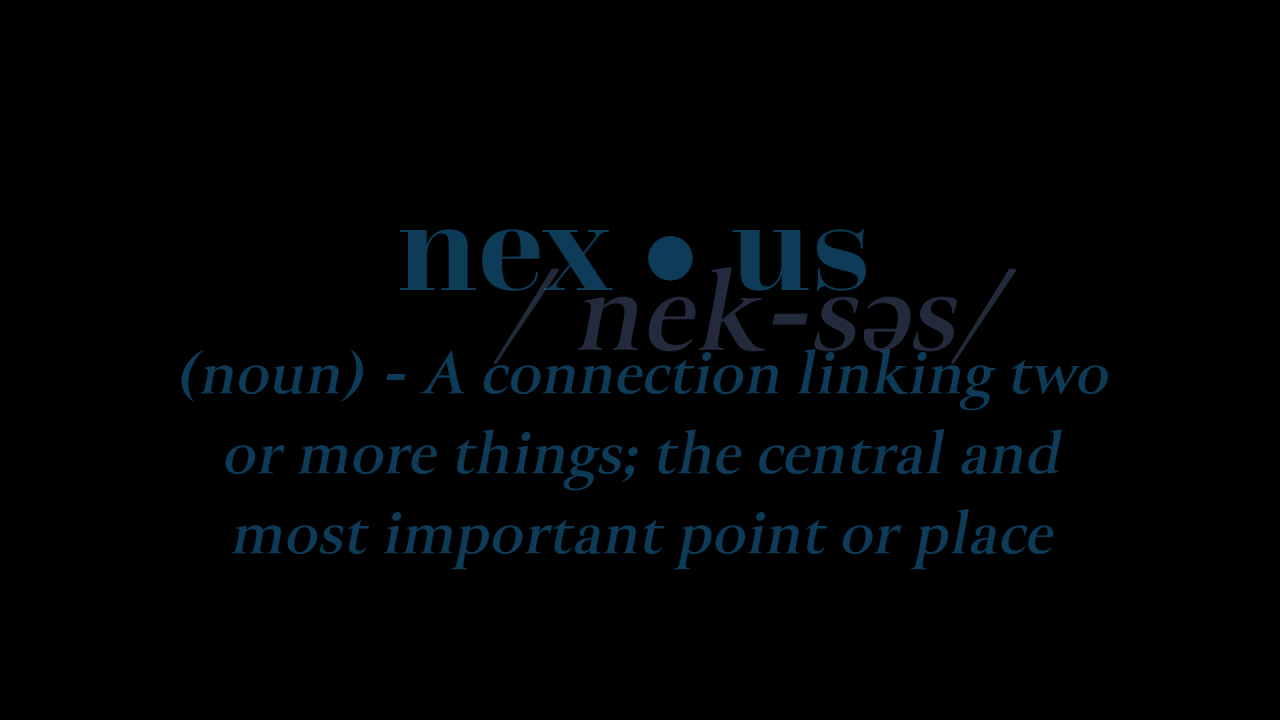
Nexus definition stands as a cornerstone in multiple disciplines, inviting us to delve into the intricate web of connections that shape our world. From technology to law, philosophy to art, the concept of nexus serves as a guiding light, illuminating the relationships and dependencies that govern our existence.
As we explore the multifaceted nature of nexus, we embark on a journey that promises to expand our understanding of the interconnectedness of all things. Join us as we unravel the threads that bind together diverse realms of human knowledge and experience.
Nexus Definition

The term “nexus” derives from the Latin word “nectere,” meaning “to bind” or “to connect.” It denotes a point of connection, intersection, or interdependence between two or more entities or concepts.
In various contexts, “nexus” can refer to:
- A central point or hub
- A causal relationship
- A connection or link
- A point of intersection or overlap
Nexus in Technology
In the realm of technology, “nexus” is often used to describe:
- Network nexus: A central point or hub that connects multiple devices or networks
- Device nexus: A device that acts as a hub or gateway for other devices
- Software nexus: A software platform that integrates multiple applications or services
The concept of “network nexus” is particularly significant in modern networking architectures, where it refers to a centralized point of control and connectivity for various network elements, such as routers, switches, and firewalls.
Nexus in Law
In law, “nexus” refers to a connection or relationship between two or more parties or entities that is relevant to a legal proceeding.
Establishing a “nexus” is often crucial for determining jurisdiction, liability, or the applicability of certain laws or regulations.
- For example, in personal injury cases, a “nexus” must be established between the defendant’s negligence and the plaintiff’s injuries to establish liability.
Nexus in Philosophy
In philosophy, “nexus” explores the interconnectedness and causality between different entities or phenomena.
It is often used to analyze complex systems and relationships, such as the relationship between mind and body or the interconnectedness of all living beings.
Nexus in Literature and Art
In literature and art, “nexus” is used to convey themes or create connections between different elements of a work.
It can refer to:
- A point of intersection or overlap between different characters or storylines
- A central theme or idea that binds the work together
- A connection between different artistic elements, such as color, shape, or texture
Understanding the “nexus” in a literary or artistic work can enhance its interpretation and appreciation.
Nexus in Social Sciences, Nexus definition
In social sciences, “nexus” is used to analyze social interactions, relationships, and structures.
It can refer to:
- The connection between different social groups or institutions
- The relationship between individual behavior and social norms
- The interconnectedness of different social phenomena, such as poverty, education, and health
Understanding the “nexus” in social sciences helps researchers analyze and address complex social issues.
Summary

Our exploration of nexus definition has taken us on a captivating journey, revealing the profound interconnectedness that permeates every aspect of our world. From the intricate networks of technology to the complexities of human relationships, the concept of nexus has served as a lens through which we have gained a deeper appreciation for the interdependence of all things.
As we continue to unravel the tapestry of connections, may we embrace the profound wisdom that lies within the nexus.
FAQ Resource: Nexus Definition
What is the etymology of “nexus”?
The term “nexus” originates from the Latin word “nectere,” meaning “to bind” or “to tie.”
How is “nexus” used in technology?
In technology, “nexus” often refers to a central point of connection or a network hub that facilitates communication and data exchange.
What does “nexus” mean in a legal context?
In law, “nexus” refers to a connection or relationship between two or more parties or entities that is relevant to a legal proceeding.
How is “nexus” explored in philosophy?
Philosophers use “nexus” to examine the interconnectedness of concepts, events, and phenomena, exploring the causal relationships and dependencies that shape our understanding of the world.
What is the significance of “nexus” in art and literature?
In art and literature, “nexus” can be used to create connections between characters, themes, or events, enhancing the depth and complexity of the creative expression.





